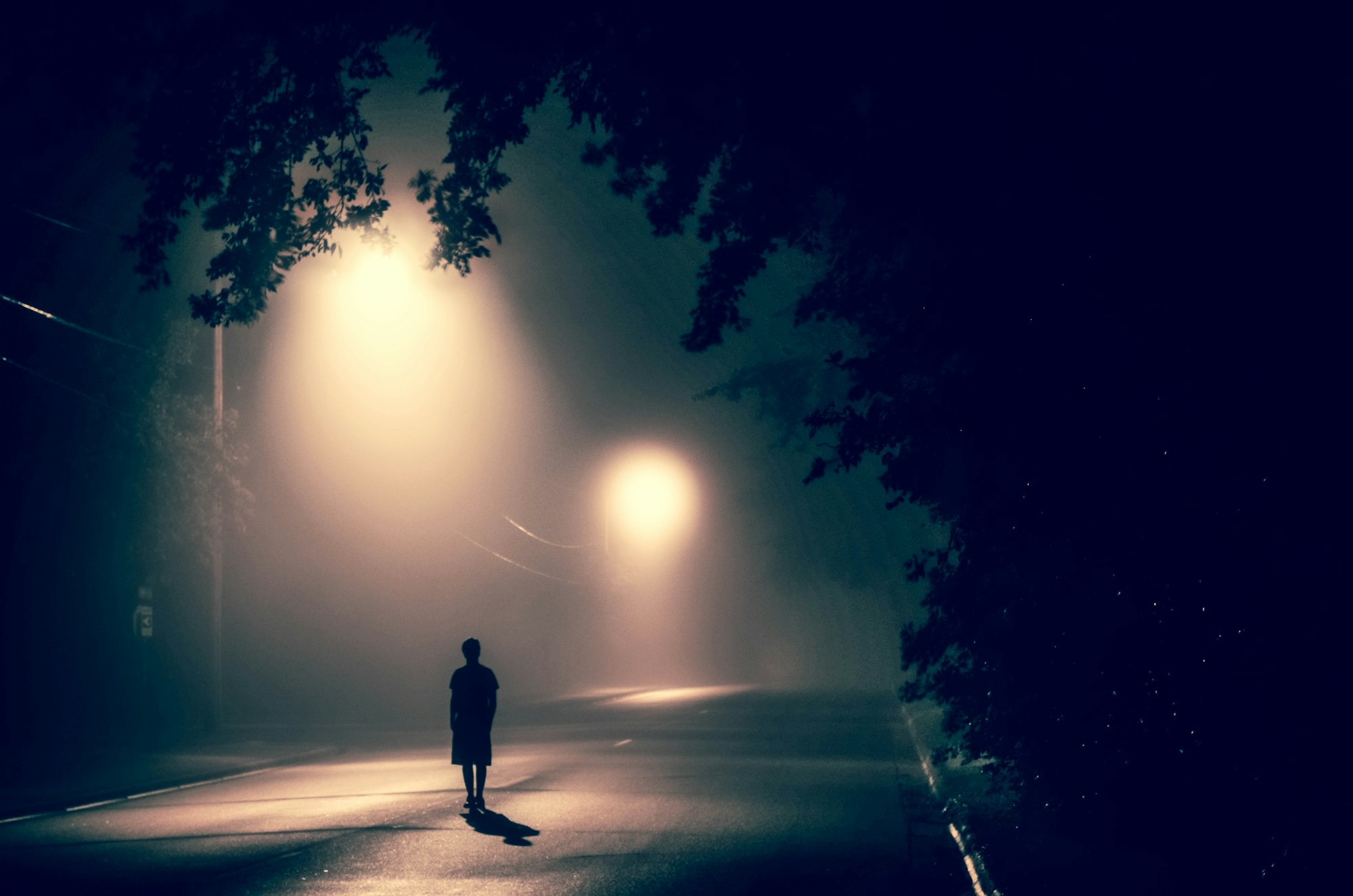First off, what does it actually mean to be lonely?
According to U.K. mental health charity Mind, everyone's perception of loneliness is different. However, according to their experts "One common description of loneliness is the feeling we get when our need for rewarding social contact and relationships is not met." For some this can mean, even when we're around lots of people, they can still feel lonely as they don't feel they are gaining meaningful connection with those around them, but can feel perfectly content when alone.
According to experts, it's actually completely normal for us to feel lonely. Julia Bainbridge, host of The Lonely Hour podcast, discusses how loneliness can actually be “a necessary part of understanding how to ultimately live better." Originally a survival instinct leftover from our hunter-gatherer days, it's something that every one of us experiences; even though it's become taboo to discuss with eachother.
While we all feel lonely from time to time, and that feeling can even be used to help us grow outside our comfort zones, chronic loneliness is where these feelings are persistent and continue into the long term. These feelings of chronic loneliness have been on the rise since the pandemic, with all of us forced to limit face-to-face contact in some form for the last two years. With phenomenon like Zoom fatigue on the rise, the connections lots of us might have had pre-pandemic have fizzled out.
The U.K. based Campaign to End Loneliness conducted research in the effects of the COVID-19 on loneliness and how it will impact society moving forward, with particpants in their survey finding that the majority of UK adults (71%) think that loneliness is going to be a serious issue beyond Covid-19. In addition to this, the report highlights that around a million more people became chronically lonely during lockdown – resulting in 3.7 million adults reporting that they were often or always lonely by the beginning of 2021 (from the ONS).
So whilst loneliness is a normal feeling all of us will feel at some point in our lives, if you start to feel lonely constantly then that's when chronic loneliness can become an issue.
So what are the signs of Chronic Loneliness?
According to healthcare provider Cigna, some of the key signs of chronic loneliness are:
- You feel unable to connect with others around you on a deeper, personal level. You probably have friends and family in your life, but any conversation or interaction with them often feels surface level; the more unfulfilling your interactions, the more disconnected you feel from the world.
- You wouldn't really say you have any close or best friends. You have friends, sure, but they're casual friends or acquaintances who you only briefly interact with; you don't feel you will ever find someone who 'truly' gets you the way you hear so many people go on about.
- You feel an overwhelming sense of isolation, even when you're around people. You can be surrounded by loads of people at a party, but still feel as though you are completely seperated from them; like you're on the outside behind a screen looking in. The same at work, and on the bus, in the supermarket, the list goes on.
- You're plauged by negative self-doubt and self-worth, and are the first to put yourself down. Whilst these feelings in the short term are normal, if they're constant and seem to drown out any compliments or good thoughts you have about yourself then they're something to consider as a sign of chronic loneliness.
- If you do try to reach out and connect with others, you often don't feel heard or understood, with your bids going unrecognised or reciprocated.
- Whenever you do try to engage with others, instead of making friends, you're more closely connected with exhaustion and burnout. Continuing feelings of exhaustion can then lead to other health problems, like poor sleep, a weakened immune system, and others. Don't underestimate the mental and emotional tolls take on our physical health.
If you're experiencing any of these, it's possible you're suffering from chronic loneliness, but it's always worth seeking help with your local healthcare provider to ensure you get the right help.
Millenial and Gen-Z: The Loneliest Generations?

According to research by What Works Wellbeing, in conjunction with the Campaign To End Loneliness, it's young people who are reporting the highest levels of loneliness in the U.K; particularly amongst 20 to 24 year olds, who fall under the Gen Z catergory.
There's also evidence that Millienials suffer with chronic loneliness, with a report by Telstra's Talking Loneliness finding that 1 in 2 Gen Z (54%) and Millenials (51%) regularly feel lonely; much higher than other generations. The reported looked into factors such as social media usage - falling into a pattern of comparison and doomscrolling - and pandemic isolation making feelings of loneliness worse for young people.
What can we do to combat loneliness?
With loneliness shown to have significant impacts on our mental and physical well-being, it's important that we all find ways to deal with loneliness and re-connect with those around us. If you find yourself struggling, then we have a few ideas on how to help ease your loneliness below:
- Rememeber you're not alone - just one look at the above statastics shows that, if you are feeling lonely, you're definitely not the only one. Chronic loneliness can trick you into thinking you're the only one trapped in your little bubble, but the likelihood is there's lots of people around you who feel the same way.
- Reach out to a friend - it's a simple enough tip, but make sure to place emphasis on meaningful connection with those around you. Reach out to loved ones and let them know what they mean to you, and checking in with them - whether it be over text or a phone call, voice notes are always a great option too - about how they're doing can help open up important conversations.
- Try out a new hobby - try and break out of your comfort zone! If you find it difficult meeting new people, then trying a new hobby is a great way to meet others with similar things in common with you. Here at Obby, we've put together a list of activities you can do at the weekend to help you make new friends which you can find here!
- Strike up a conversation with a stranger - while it might sound daunting, a simple interaction when you're out and about can be the best way to break out of your bubble. Whether it be in your favourite café, or if you spot your neighbour, or the receptionist at work, try striking up a conversation with someone new; you'd be suprised to see how might you might have in common!
- Find support online - while it's true that the internet can be detrimental for our well-being, it's also true that it can be a place to find communities and new friends. Groups have sprung up on places like Facebook and Instagram designed to help others meet new friends in their local areas, which is a great way to make new friends close to you. As always when it comes to the internet, be wary of those you get to know online and with sharing personal details, but geniune support and community is out there.
- Get professional guidance - whilst all these ways are great options you can take yourself, sometimes you need to reach out for outside help and that's okay. If you're struggling with overwhelming feelings of loneliness, then try contacting your GP/local mental health support to see what help is available near you. If you're looking to speak to a mental health professional, such as a therapist, Mind also offers support in finding a professional fit that works for you and how to access help.
Want to know more?
Interested in finding out more about the Obby Learning Community? Check out some blogs featuring our amazing Obby teachers and learn their stories below:

